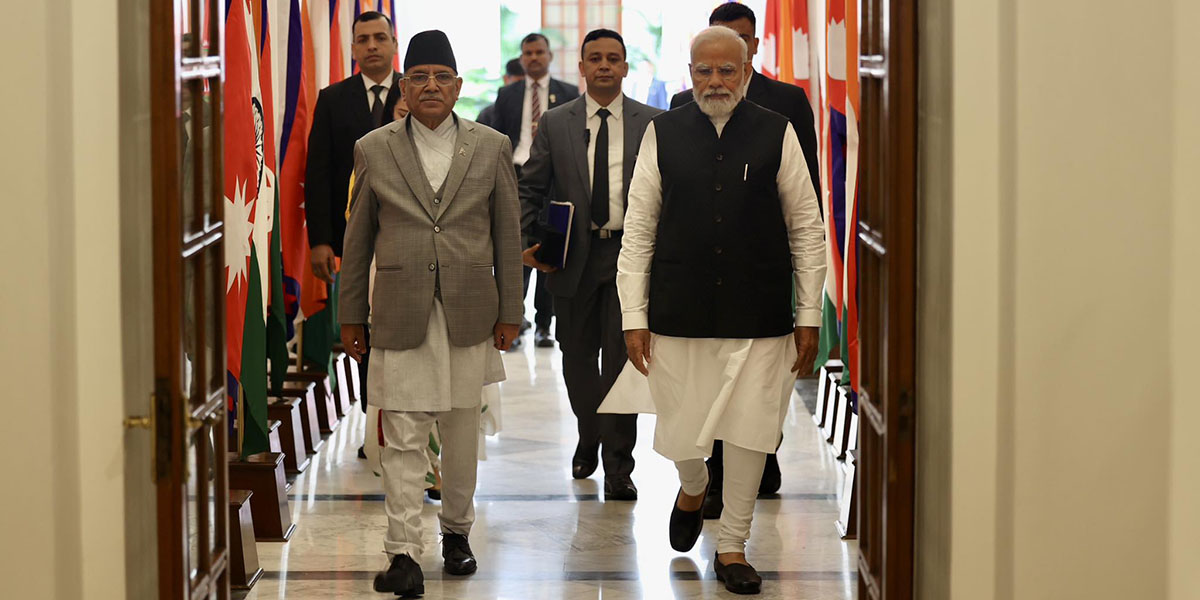
KATHMANDU: Prime Minister Pushpa Kamal Dahal’s recent visit to India, which took place six months after assuming office, has been limited to formalities as it failed to address the main issues between Nepal and India.
During the visit, Dahal missed the opportunity to raise crucial matters that needed attention and resolution. Despite the lack of substantial progress on these issues, Dahal has labeled his visit as historic. He expressed helplessness on some issues saying that ‘the atmosphere may deteriorate.
Dahal did not manage to bring any significant matters to a satisfactory conclusion. He won’t have a ‘positive body language’, to borrow his own words, when he lands at the International Airport in Kathmandu on Saturday.
This marks Dahal’s fourth visit to India as the Prime Minister. While previous Prime Ministers were accommodated at the Rashtrapati Bhavan, Dahal was hosted at Hotel Maurya.
Dahal led a delegation of over 120 members to India. However, the size of the delegation does not guarantee a successful visit. Dahal, who would openly criticize the 1950 treaty, border disputes, Gurkha recruitment, and other pertinent matters while in the opposition, chose to remain silent on these issues during his visit.
A ‘breakthrough’ that never existed
Dahal has claimed that a new breakthrough has been achieved in the energy trade. But the fact is he failed to take a firm stand against India’s policy of exclusively purchasing energy from projects developed by its own companies. He is clearly unaware of the long-term implications of allowing only India to build hydropower projects in Nepal.
Dahal agreed to hand over key hydropower projects to India after New Delhi made it clear that it would buy energy solely from plants developed by Indian companies. It is disheartening that the prime minister has chosen to foster dependency rather than pursue the option of selling electricity at competitive prices in the international market.
While several projects being handled by Indian companies, such as Upper Karnali, have not made significant progress, Nepal has entrusted two more projects to Indian companies.
Dahal also claimed that a foundation has been created to attract investment in the hydropower sector and that an important agreement has been reached for power exports to Bangladesh.
One of the notable strengths of Indian diplomacy is its ability to navigate and achieve results both at the political and employee levels when required. Dahal seemed to be oblivious to this strength of Indian diplomacy.
‘India will be angry’
Dahal’s failure to address the longstanding issue of the 1950 treaty, which has been a point of contention in bilateral relations, is a matter of concern. He has acknowledged that he refrained from raising this issue because India would get angry.
It seemed that Dahal raised issues that made India happy. Dahal, who was accused of fulfilling every Indian demand to pave the way for his visit, appeared uncomfortable, with visible signs of pressure on his face during the visit.
Dahal himself acknowledged this pressure, stating, “You must have noticed the pressure on my face! The atmosphere had already deteriorated, but I attempted to create a positive atmosphere through my discussions with Indian Prime Minister Narendra Modi.”
The diplomatic interpretation of Dahal’s statement suggests that there may still be challenges in the relationship at the employee level while maintaining a relatively positive rapport at the political level. Additionally, Dahal’s comment could be seen as an attempt to highlight his own efforts and accomplishments, possibly implying that others were not as effective.
One of the notable strengths of Indian diplomacy is its ability to navigate and achieve results both at the political and employee levels when required. Dahal seemed to be oblivious to this strength of Indian diplomacy.
By admitting that he was ‘under pressure’, Dahal not only exposed his weaknesses but also undermined the overall perception of Nepali diplomacy.
‘EPG would have deteriorated the situation further’
Dahal’s failure to address the Eminent Persons Group (EPG) report, which was prepared by prominent figures from both Nepal and India to analyze the overall relationship between the two countries, highlights his perceived weakness in handling important matters. The report, which offers a vision for the Nepal-India relationship for the next two centuries, has remained largely ignored.
Dahal admitted his helplessness saying that the situation would have deteriorated further. “Had I raised the issue, the atmosphere would have deteriorated further. Therefore, I started to create the atmosphere instead of spoiling it,” Dahal told visiting Nepali journalists in New Delhi Friday morning.
The ninth meeting of EPG held in Kathmandu in June 2018, decided to first present the EPG report to the Indian Prime Minister before submitting it to the Prime Minister in Kathmandu. However, the Indian Prime Minister rejected the report after hearing the views of Jayant Prasad, a member of the EPG and former Indian ambassador to Nepal. Despite being readily accepted by other members, the report has remained unresolved to this day.
Dahal also failed to raise the issue of demonetized Indian notes in Nepal. This was an important matter that required strong advocacy and efforts to find an amicable solution. Similarly, Dahal’s failure to strongly address the issue of new air routes is concerning.
Dahal also failed to clearly convey Nepal’s latest position on the recruitment of Nepali youths in the Indian Army, particularly in light of India’s new Agnipath scheme.
Nepal and India have agreed to prepare a detailed project report (DPR) of the Pancheshwar Multipurpose Project within three months. He seems to have forgotten how many times the two countries have reached a similar understanding on Pancheshwar. Agreements reached at the political level with India often face obstacles or inefficiencies when it comes to implementation at the employee level. It is crucial for leaders to recognize such things.
The Limpiyadhura-Kalapani border issue was also not raised during Dahal’s visit. Similarly, Dahal also failed to clearly convey Nepal’s latest position on the recruitment of Nepali youths in the Indian Army, particularly in light of India’s new Agnipath scheme.
Dahal’s decision to offer worship and prayers at the Mahakaleshwar Temple in Ujjain, while not visiting the renowned Pashupatinath Temple at home, has drawn sharp criticism from left-leaning leaders. Nepali ministers accompanying Dahal in his delegation seemed to have a limited role during the visit. They were often seen accompanying Dahal, suggesting a lack of independent engagement on their part.
Prachanda’s visit can be seen as falling short of expectations, as it did not result in agreements on new air routes and the sharing of water from the Mahakali River in the Pancheshwar Multipurpose Project. Given India’s lackluster attitude on key issues, Dahal could have considered returning to Kathmandu skipping his Ujjain visit. However, Dahal chose to sign seven agreements that were in line with India’s interests.
By taking a jumbo team to India, Dahal made a mockery of diplomatic ethics and protocol. Considering Dahal’s uncertainty about being able to visit India during his premiership, the visit itself may be considered an achievement for him personally.


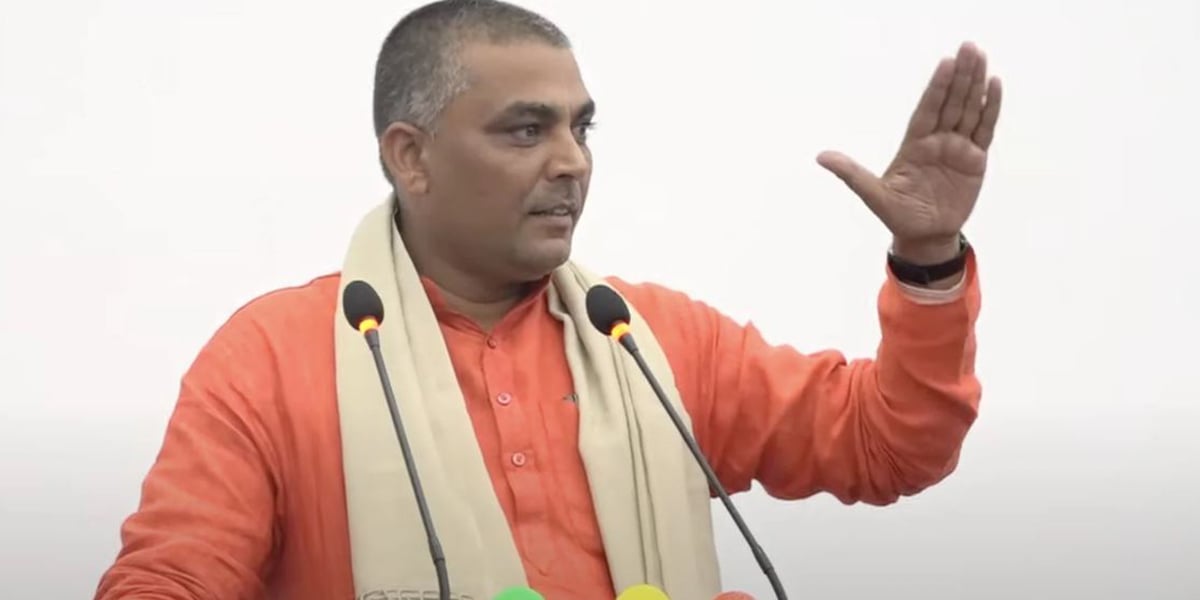
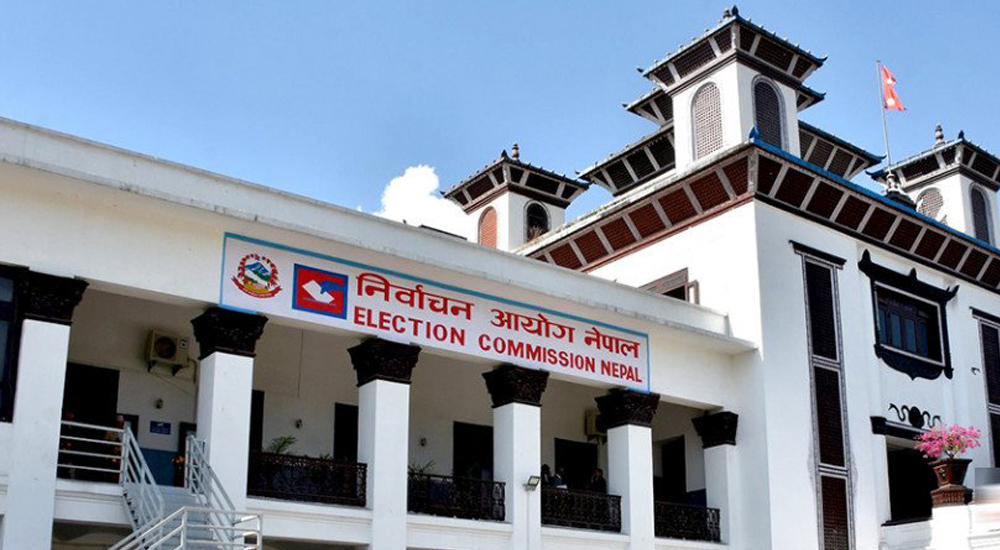
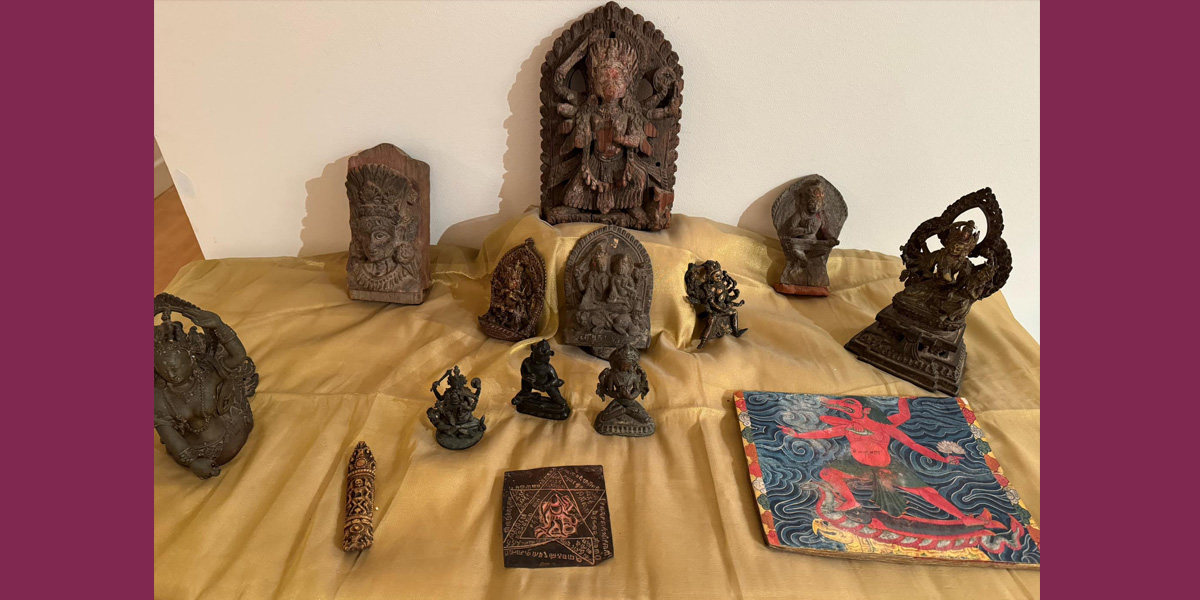

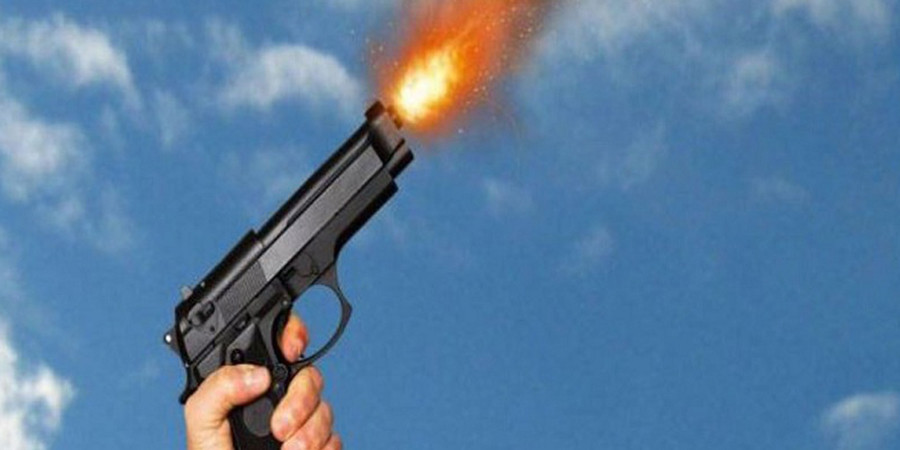
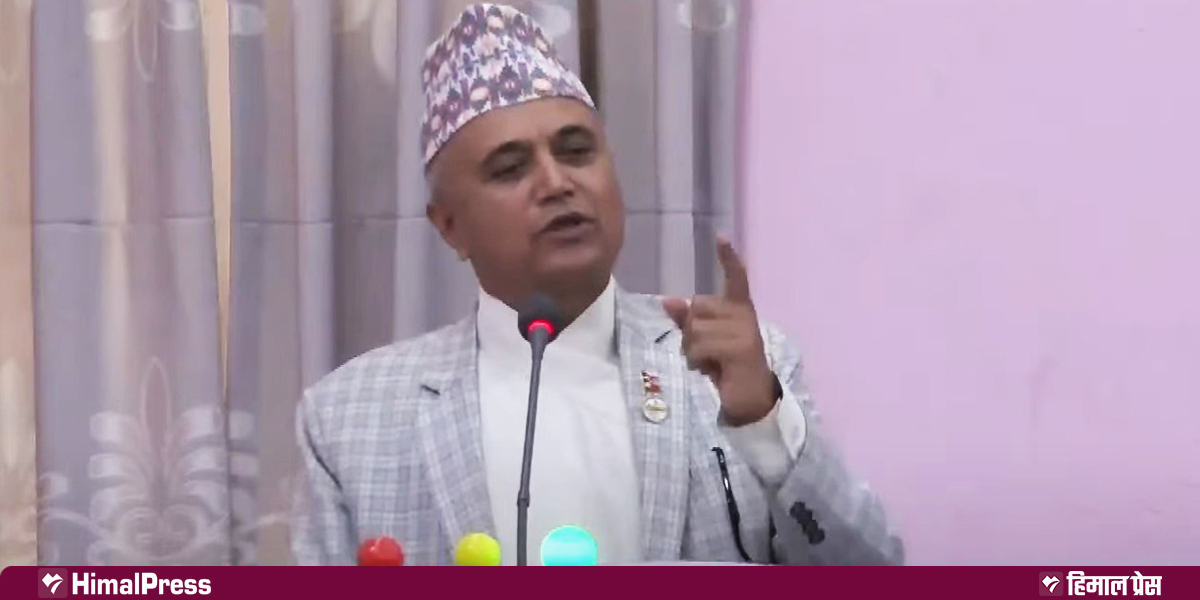
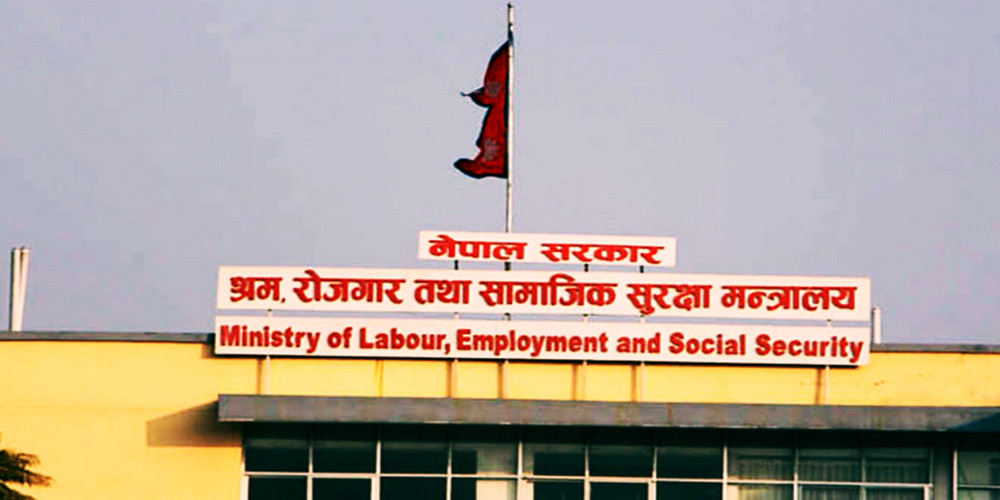
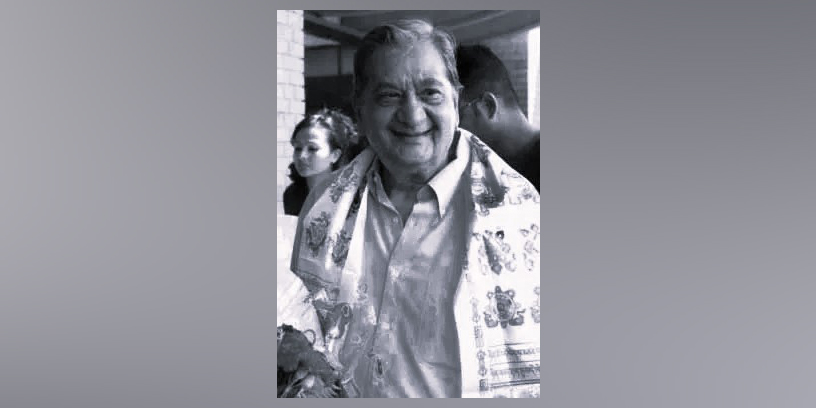
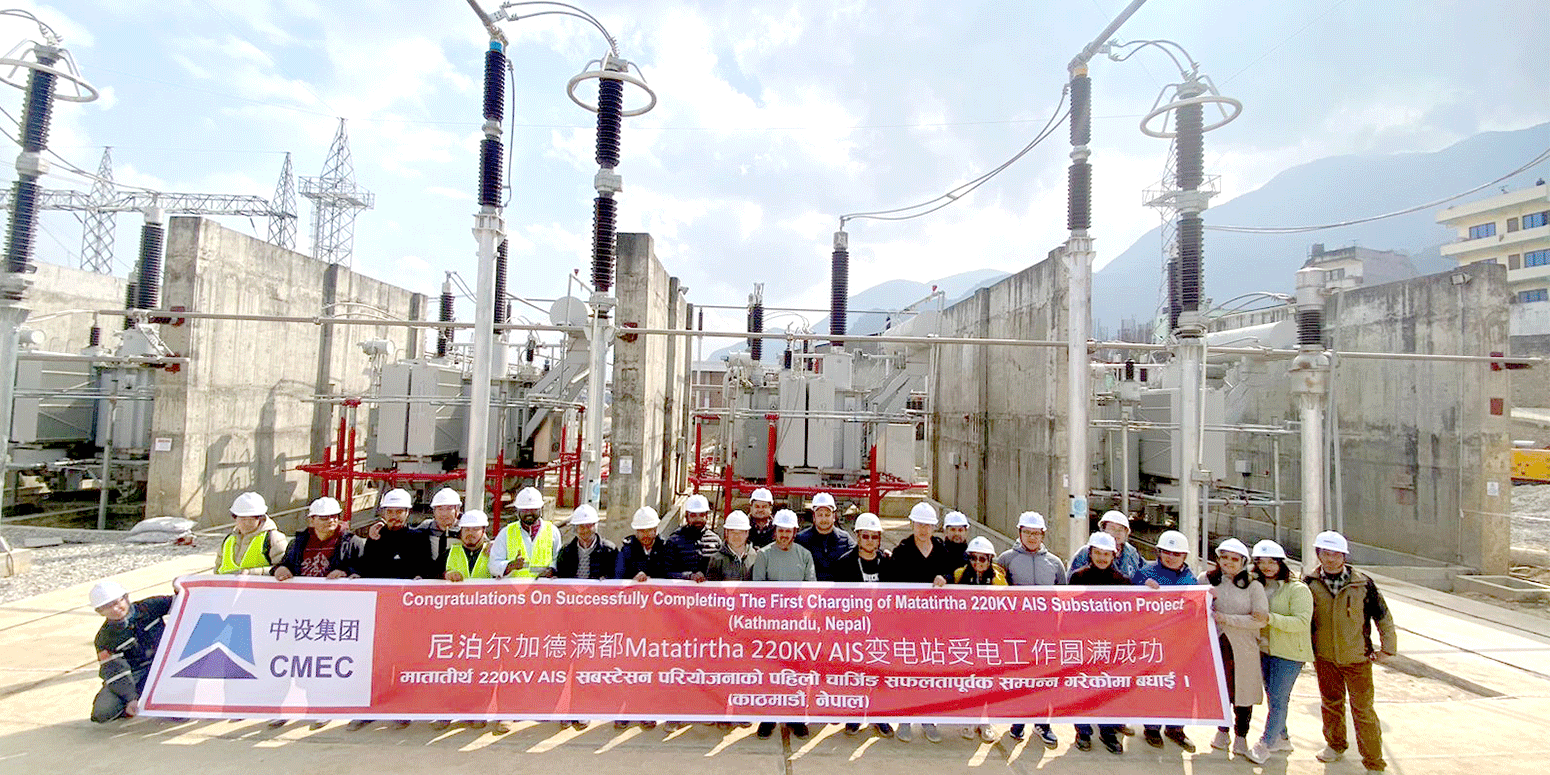
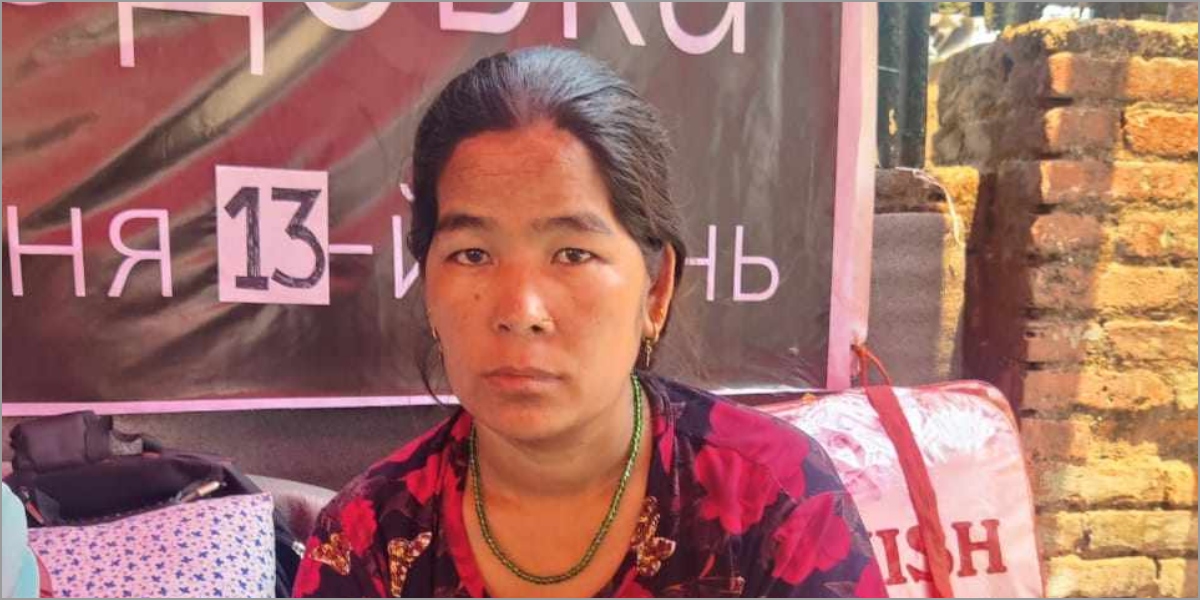

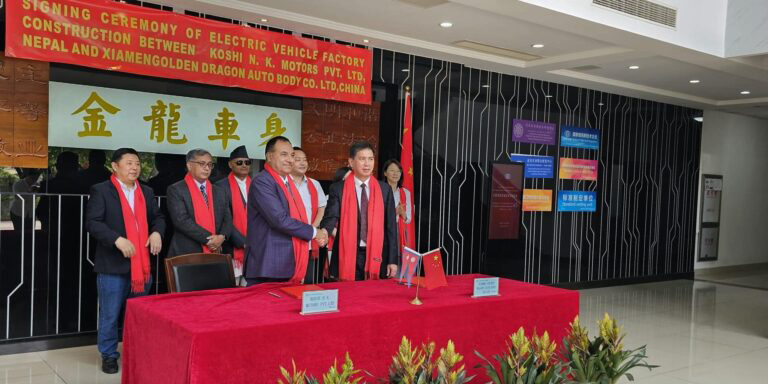
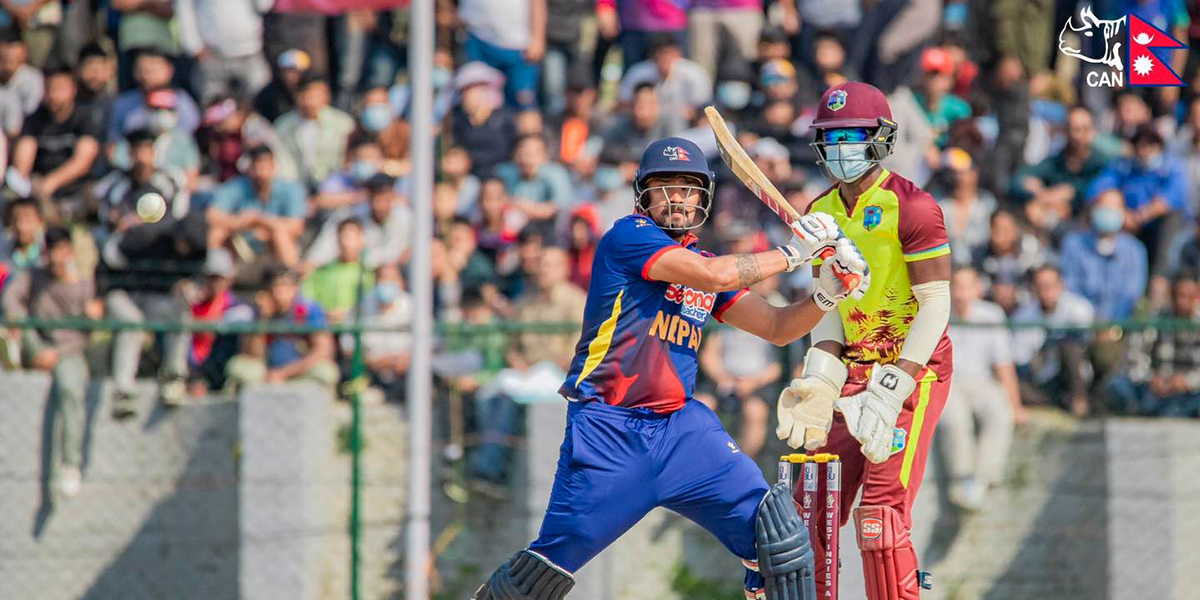
Very good analysis